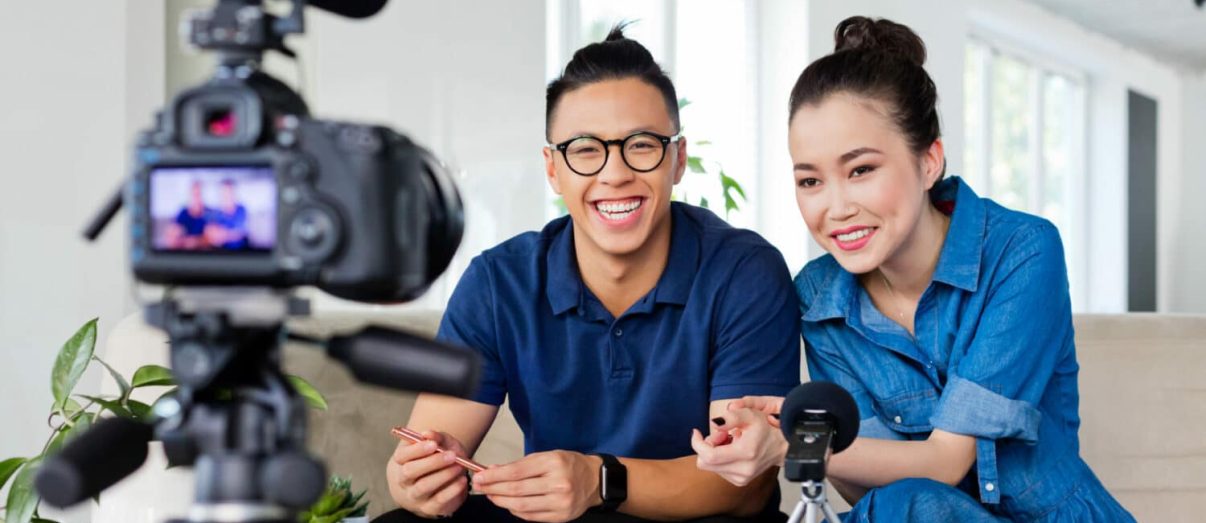Anthony: Hi everyone! My name is Anthony Dickinson and I’m a Tax Consultant at DPM. At DPM, we feel it’s a part of our mission to give back to students and really help educate them and prepare for their life and journey as a Doctor. The constant feedback we’re getting surrounds the nerves, how to prepare and what to expect during your internship year. Today, I’m here with Jordan Walter, who is a current Intern at Barwon Hospital. Jordan is going to be answering and giving some feedback around the questions you’ve been asking and how her year has been. Jordan and I first met at the start of 2019 when Jordan was a Rep at Deakin University, along with many other Interns who’ve had a very strange year. Welcome Jordan, and thanks for joining us today.
Jordan: No, thank you for having me.
Anthony: I’m just gonna start off with the obvious question, and that’s how’s your year been? And what’s it been like being a first year Doctor during the global pandemic?
Jordan: Definitely not what I was expecting, in terms of a global pandemic!
Anthony: Yeah. No, don’t think anyone did.
Jordan: That wasn’t my expected things to happen during your internship. So that’s been a learning curve, much more PPE usage than I had initially ever thought I would need to know how to do. But it’s been awesome, I think it’s been so good to just jump headfirst into a pandemic, starting off in the emergency department when COVID was heating up. And seeing that, really on the frontline as they came through the door, and then moving to like now on Gen Med on the COVID ward, and thankfully, we have no one. But seeing them come from ED to then their stay throughout, at their time at the hospital has been pretty unique.
Anthony: Yeah, and what’s the sort of PPE process been? And, is that here to stay for next year?
Jordan: There’s lots of training for how to correctly put on the PPE. It’s very sweaty and not pleasant. Um, but I think it’ll be here to stay as long as COVID is a big issue in the world. And it’s something that we always did for other diseases like the flu, but we just had to do it a lot more this year, because well everyone coming onto my ward at the moment is someone who’s suspected of COVID. So gowning up for every patient you see.
Anthony: Yep, so real safety first measures I guess.
Jordan: And very long ward rounds.
Anthony: Ward rounds, yep okay nice. So what have you enjoyed most about your year then?
Jordan: Um, it’s nice actually being able to work for what I’ve worked towards for the past seven plus years, and getting paid to do it is also a nice bonus. That I’d love coming back, I’m at the same hospital that I did my medical training at. So it’s been really nice to come back to work with the teams that I worked with as a student, and get to work with them as a Doctor this time. I really enjoyed that.
Anthony: Yeah. Awesome. And so what are some of the challenges? What haven’t you enjoyed so much?
Jordan: So probably the biggest thing is moving teams every 10 weeks, you finally feel like you get settled, you know what you’re doing, you understand the job. And then bang, it’s time to move to a new rotation, a new
ward with a new team. And it’s really those first couple weeks can be really unsettling. You were comfortable on your old ward, and now you’re in a new environment with people you don’t know. So those first few weeks of every rotation, I’ve probably found the most difficult of the year.
Anthony: Yep, and do you have any tips around how to sort of get prepared or ready for that? Or it’s jump in headfirst and attack it or?
Jordan: Yeah, I think the best thing to do, I’ve always found it helpful to go and introduce yourself to the sort of Nurse Unit Manager and Ward Clark the week before you start. So on the Friday, I’ll make an effort to head over to the new ward and just give them a heads up who I am and who they’re expecting on Monday morning. And it’s always nice, because then you’ve met them and you’re not looking around trying to find where you
need to go. Um, and getting a good hand over from the Interns that have done the rotation before you is so important. They’re the ones that have just learned all the tips and tricks and it’s best if you can get it off them before you start so you don’t fumble too much.
Anthony: Yeah definitely, that makes a lot of sense. What’s it been like in terms of overtime? Have you been doing much? Do you get paid for it? Is it an awkward conversation around pay there?
Jordan: That’s a tough one. It’s always the question you’re asked the most or asking the most as a student to Interns and Junior Doctors. It is really hospital dependent on if you get paid overtime. Some health services are really well known for paying overtime, and others go the other way and they’re quite well known for not wanting to pay you overtime. What I would recommend people to do is to check out the AMA’s Hospital Health Check Survey. So, it’s a survey that goes out to Junior Doctors and they answer questions on how their year has been and it ends up coming out with a grade of rankings for things like rostering and overtime, access to your leave, and the culture of the hospital, so it gives it an A to E grade. So you can go on and check out your potential health services and give you a bit of a heads up as to what it might be like to work there.
Anthony: Okay, awesome, great advice as well. Because yeah, I’ve read through that it’s a pretty big hand book, but I’m sure it’ll be useful as well, in the future. Um, so what are the, who are, sorry, who are the best people to ask in the hospital for help as an Intern?
Jordan: It’s always important, I think, to know where to go. So that’s a very good question. Your team is always the best place to start. So your Residents and Registrars and your Consultants as well, most of them are always happy to be called. But there’s definitely times in your internship where you won’t be able to contact your team, your Reg will be in theatre, and the Consultant will be with them. So I think if you’re really stuck, and you can’t find anyone on your team to go to, don’t forget the Nurses on your ward, they’re often very, very experienced in that area and are good at asking those little questions too. But for the big sort of more emergent questions, the Med Reg, or the ICU Reg are great people to go to, especially if they’re just about to sit their exams, or they’ve just sat their exams and have all the knowledge in their head. They’re good at managing emergency situations and but the one thing I would say is, if you’re ever concerned, just call a Met Call. It’ll get the right people there quickly, and calling for clinical concern, or clinical worry is a reason to call one. So if you’re ever in a panic, just call one people will come, I have and it’s very helpful.
Anthony: Okay, great advice there, thank you. Um, so, in regards to rotations, so obviously you know you’ve done your Gen Med, your ED, your Surg and you get your electives. Um, is it a big deal if you don’t get your electives? Will it affect your future in anyway? How do you handle this situation?
Jordan: Um, it doesn’t really affect your future in any way at all. So I as an intern, my interest is Paediatrics and you can’t do that as an Intern. Um, so I think going into every rotation with an open mind, knowing that you can get something out of every rotation, no matter what specialty you want to do, that’s the best way to go about things. I think even if you know what you want to specialise in, try not to pigeonhole yourself during internship. As I said, there’s always going to be something from a rotation to take away and it’s going to be relevant to your specialty. There are probably some things where you really want to get your elective so I’ll be gunning for Peds elective next year to get help get me references to get on the training program.
But it’s not a life or death thing, you can always get around in another way and if you really are interested, there’s probably someone who’s not and wants to swap with you anyway, so there’s ways around it.
Anthony: Yeah, that was gonna be my next question, actually. Is it hard to sort of swap with other people in the hospital? Is that a long process? I know it does happen a bit but is it mainly hospital dependent or?
Jordan: Yeah, I think it’s probably pretty hospital dependent. I’ve swapped the current rotation that I’m on, another one of the Interns was really keen on surgery, and I am not at all keen on surgery. And having done two surgical rotations through the year, I was happy to swap my Gen Surg term for his Gen Med term, so it is possible.
Anthony: It is possible, alright awesome. So it’s not uncommon for anyone to go into each rotation or even the start of next year be very nervous. Do you have any tips around this? How did you sort of deal with it? What not to bottle up, anything along those lines?
Jordan: Yeah, so I think it’s best to acknowledge that everyone is stressed about internship, I was terrified before starting.
So knowing that you’ve put all the hard work in throughout the last seven to eight years and the internship is a program that’s designed to be a learn on the job experience, it’s a whole year of learning as you go. I think what helped me was knowing where to go for help. If I was worried, having all the common websites that I need to access quickly saved as tabs on my phone that I could quickly open at a Met Call or something like that if I needed, but knowing where to get help is is the main thing and I think every Doctor was an Intern once most of them remember what it was like some don’t. So they’re there to help and support you, so asking for help when you need it, is so incredibly important. And one tip that I was given by an Anaesthetist was to make a little cheat sheet on my phone of all the common drugs that you prescribe. And then if you’re in a Met Call or in a pinch on a tight ward round, it’s just open your phone and the dose is right there in front of you. You don’t have to go searching for it online.
Anthony: Yeah, okay, that’s great advice then. Um, and then just finally, is there any tips you have around, you know, because students do have a bit of time off in between starting next year, anything they should be doing to get prepared, anything you know, you wish you did that you didn’t do, anything in that regard.
Jordan: The best thing to do between finishing medical school and starting your internship is to have a break. Like you’ve just finished a huge course, four or five years, at least for the medical degree plus your work or study before that. So having time off, enjoying the what month or two before your study internship is so important. You’ll learn on the job, as long as you’ve got your sort of cheat sheets ready, you know where to go on day one and for your orientation.
That’s all you need to do. Relax in your break, while you’ve got it.
Anthony: And in terms of, did you, were you able to take much time off this year, or is it sort of been a strange year where no one can get away, so no one wanted to take time off?
Jordan: So we all had our annual leave allocated at the start of the year and I think that’s the same for most hospitals and Junior Doctors. So I remember being very annoyed last year that I got my annual leave in my first rotation, in week seven and eight of the year and that turned out to be the best thing ever because I got to go on holiday.
And the week after I got back, all the thing all holidays shut down. So I was grateful for that. But um, no leave is mostly hospital dependent.
Anthony: Yep, okay, awesome. Well that’s pretty much everything we want to ask you today. Thanks, again, so much for your time, we completely understand you’re super busy.
And yeah, we hope you enjoy some time off. I know, you’re onto your final rotation and what only five or six ways to go and then you get a three week break. So hopefully you can get away somewhere. We’re starting to open up which looks promising, but yeah, thank you again very much for your time, we really appreciate it.
Jordan: No problems at all.
Anthony: Thank you for watching. We didn’t really touch on your finances, but that’s something you might also want to start thinking about and getting prepared for next year. What DPM offers in this way is a free no-obligation initial consultation with myself or one of the other Tax Consultants at DPM. In an initial consultation, what we cover off is a personalised salary packaging plan tailored towards you, and the hospital you’ll be going to, we’ll cover off your taxes, going through insurances as well as discussing future plans and goals. If you feel like you want to book in one of these, feel free to jump on to our website, or DM us. Thank you for watching and we look forward to seeing you soon.





